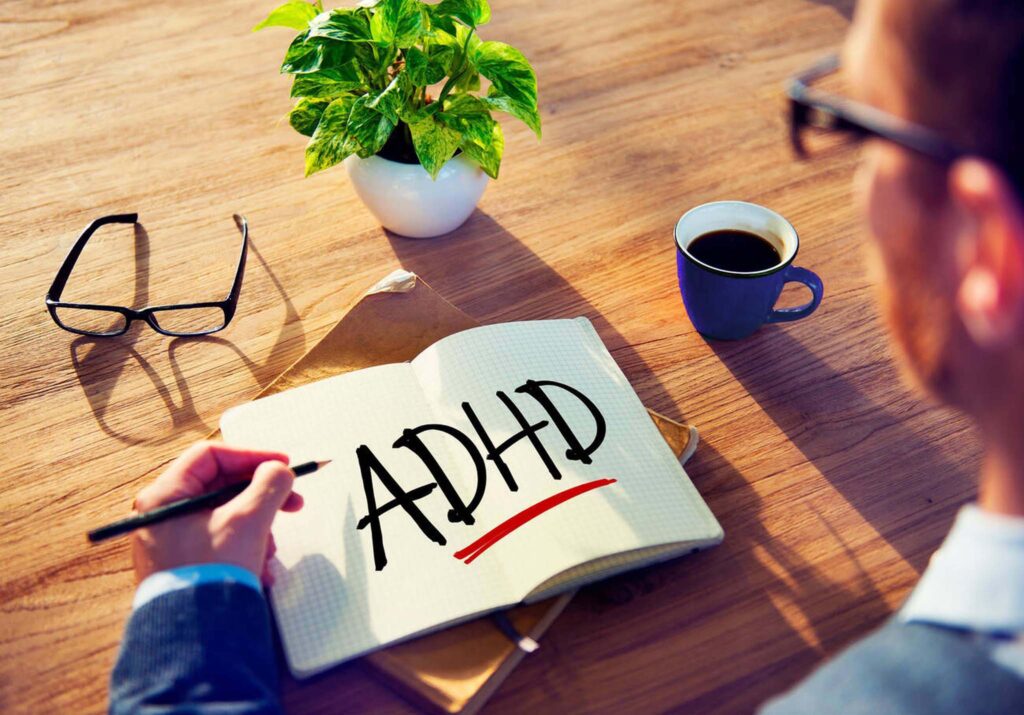ADHD in Adults: What to Expect at Your First Appointment
How do psychiatric providers test for ADHD? Testing for ADHD (Attention-deficit/hyperactivity disorder) can be daunting, but it is a routine evaluation if you seek out the right clinician. ADHD is a complex diagnosis, and we recommend seeking out a provider with years of experience dealing with ADHD and psychiatric medication. Their specialized mental health training equips them with the tools to understand what you are experiencing and recommend the best care. During the evaluation, they will ask you some simple questions and gather details about what’s going on and the impact it may be having on your day-to-day life. As you answer, they will make observations to gain a better understanding of your mental health and provide a thorough and informed diagnosis. If your Specialist does find that you’re dealing with ADHD, they will help find the best medication treatment plan for you. Since the symptoms of ADHD are so similar to other mental health conditions, they might even find you have another condition altogether––and of course, they’ll help you make a treatment plan for that, too. Can adults develop ADHD? You’re right that ADHD typically develops in childhood, but many adults experience ongoing symptoms. Some individuals may not have been diagnosed as children but discover they have ADHD and may seek treatment as adults. What are the symptoms of ADHD? ADHD can feel a little different for everybody since there are three different types ––inattentive, hyperactive/impulsive, and combined. Depending on what type of ADHD you have, symptoms might include: • Trouble paying attention to details in work tasks. • Difficulty staying focused during longer tasks like reading, conversations, or lectures. • Getting easily distracted by unrelated thoughts or stimuli. • Forgetfulness, such as daily tasks or chores • Poor organizational skills • Seemingly not listening when spoken to • Misplacing things such as keys, phones, or assignments • Difficulty finishing or following through on previously started tasks. • Reluctant to engage in tasks that require a lot of effort. • Constant fidgeting or squirming • Inability to stay seated or still. • Feeling restless often • Feeling constantly “on the go” • Inability to engage in quiet activities. • Overly talkative • Often interrupting others • Often blurting out answers or completing others’ sentences • Difficulty waiting their turn. Why choose Journey Psyche for ADHD treatment? Our highly qualified team consists of Stacy Lyons and Desanne Gonsalves. Both women are dual-trained, certified in medication management and talk therapy, and have years of experience in this area. They specialize in treating ADHD and see several ongoing loyal patients daily for ADHD. Additionally, they both have personal experience with ADHD, which allows them to better understand and empathize with their patients. Evaluation You’ll meet and talk with them online and answer questions about your current symptoms, personal history, medical history, and mental health goals. Diagnosis Based on everything you share in your evaluation, they will be able to assess your mental health and give you a diagnosis, if necessary. Getting a diagnosis might seem scary, but it’s a great next step in understanding your feelings. Our specialist will help you work through any emotions that come up with your diagnosis. Treatment plan Together, you’ll develop a personalized treatment plan to manage your symptoms. Your plan might include medication, therapy, or a combination of both. Our specialist will discuss the benefits and potential side effects of any medication and, if necessary, refer you to a therapist for collaborative care. Is it possible to treat ADHD virtually? Yes, virtual care is just as effective as in-person care. Our goal is always to find you the best treatment plan. ADHD Medication Safe? Certainly, when used appropriately as a component of a treatment regimen, medications for ADHD are a secure way to enhance one’s mental health. Furthermore, your specialist will assist you in monitoring your symptoms to ensure that you respond positively to any prescribed medications with minimal negative side effects.
ADHD in Adults: What to Expect at Your First Appointment Read More »


